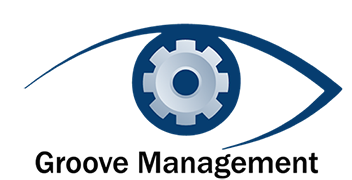Who Owns Your Development Plan?
As we enter the summer months, many organizations begin the mid-year review process. In addition to reviewing progress towards annual goals, employees must address their actions related to individual development plans. Development planning is often an afterthought in the review process. Organizations with a focus on learning and development might take a different approach and place much more emphasis on the development plans. Either way this returns me to the title of this article: Who owns your development plan? It is my strong belief that you do! So what does owning your development plan mean?
It means that rather than placing the accountability on your boss or someone else in your organization, you establish your own development needs and your plan to address those needs. Below is an outline of the steps necessary to build an effective development plan.
Determine What to develop:
Be clear on your strengths: Many organizations try to focus so much attention on deficiencies. Before addressing deficiencies, it is important that you are clear on what you do really well. Your development plan might include focusing more attention on nurturing your underutilized strengths.
Be clear on your weaknesses: It is important to identify your weaknesses and then to assess whether or not to invest the time and effort to overcome them. In many instances my coaching clients come to realize that they can overcome their weaknesses by surrounding themselves with people who excel at those things. If a weakness must be developed, then a very deliberate and committed approach must be taken to overcome the weakness.
Determine How to develop:
Establish how you learn best. Some people can learn from reading, others from attending classes and most through experience. Understanding your own learning style is an important step in creating your development plan. Would a coach provide the best development for you? Can you attend a workshop? Are there books for you to read? Is there a project for you to work on? Could participating in something outside of work provide you with the perfect development opportunity? Would an open enrollment program with leaders from other organizations make the most sense?
Determine Why develop:
There needs to be a well justified reason behind the development plan. In order to gain organizational support and funding, there must be a clear return on the investment. If you enhance your capabilities in the specific area, how will it benefit you and your organization?
Determine When to develop:
Having a timeline with a due date is important. With so many competing priorities, development plans often take a back seat. By creating a timeline that is agreed upon with your boss, you drive commitment. If your development plan is event driven, then use the event to drive the timeline.
Determine the Measurement:
Set clear success factors. What will be the specific measurement of success? Are there quantitative as well as qualitative measures that can be applied? Determining those in advance helps to keep you on track with the development plan and helps justify the organization’s investment.
Does the size of the organization and where you sit in it matter to development planning?
For employees in larger organizations there is often more structure around development planning. As a business owner or C-level employee development opportunities are often an afterthought. Leadership development is done to get people to the senior management level, right? Well partially right.
The best leaders are lifelong learners. Their thirst for knowledge is typically one of the key factors in their success.
For people further down in an organization, many tend to defer to their bosses or the organization to plan out their development. That wait and see approach rarely pays dividends.
Whether you are a CEO or a line manager, I believe that you need to own your development plan. By following the steps outlined in this article you can be much more deliberate in your approach. With a well thought out plan it is much easier to secure the funding and support required to execute your development plan.
If you are an experiential learner, consider a program that pushes you out of your comfort zone and challenges you in new ways. LeaderSurf is a recently launched offering that was created to develop leadership capability leveraging a unique approach that merges learning to surf with becoming a better leader. Learn more at LeaderSurf.com . While a program like this is clearly not for everyone, you must determine what type of development activity matches best with your learning style as well as your organization's appetite for creative development.

